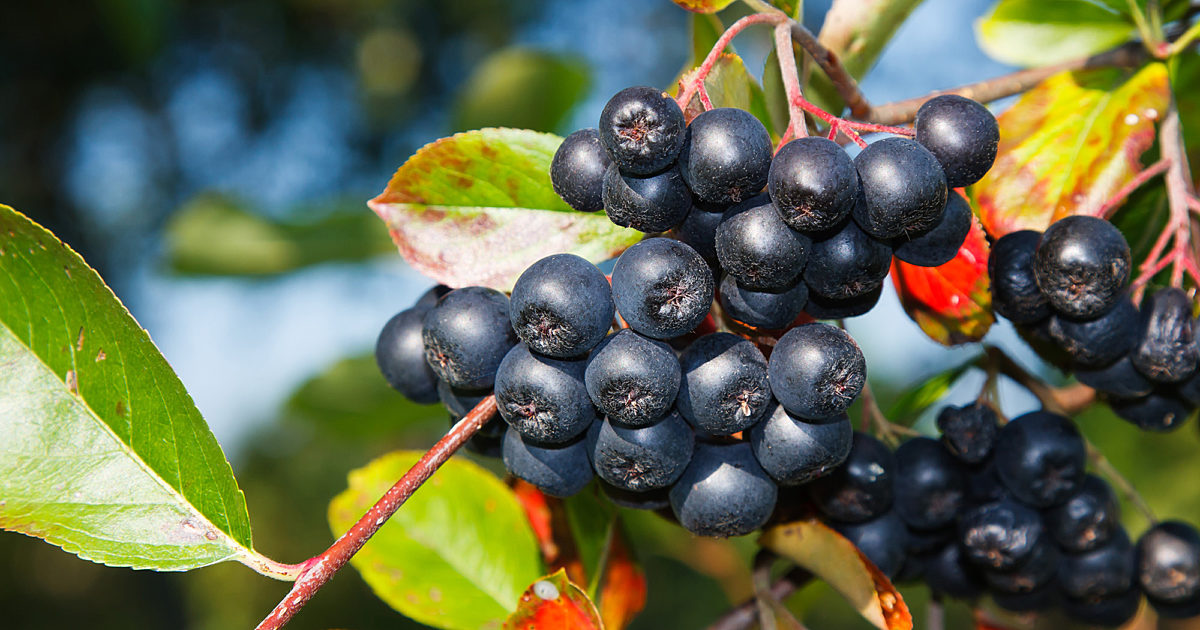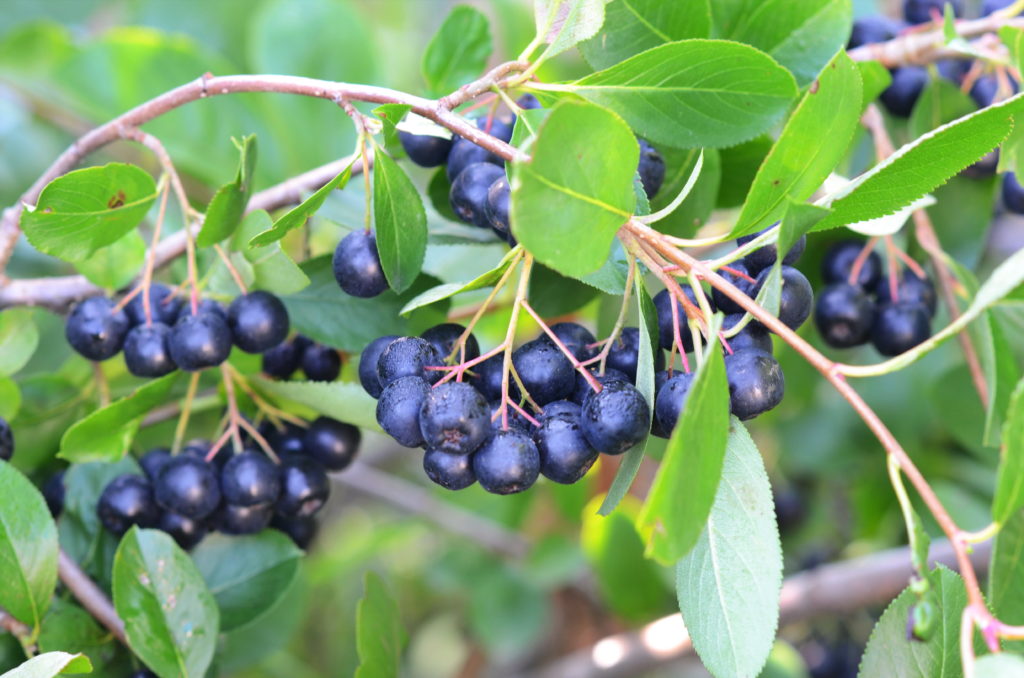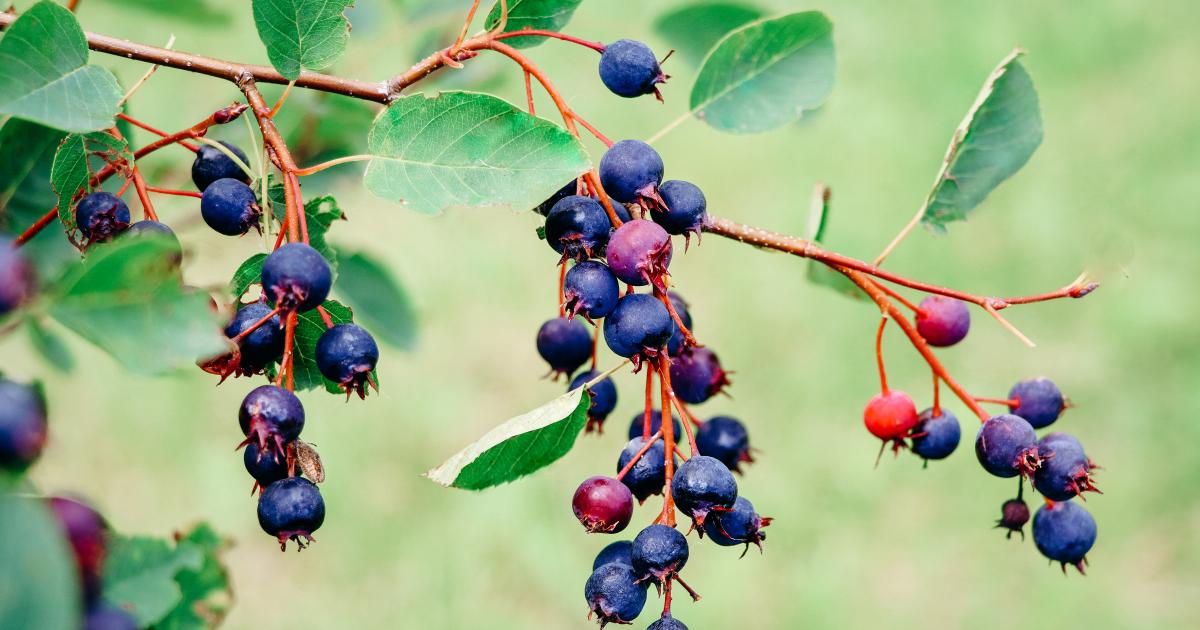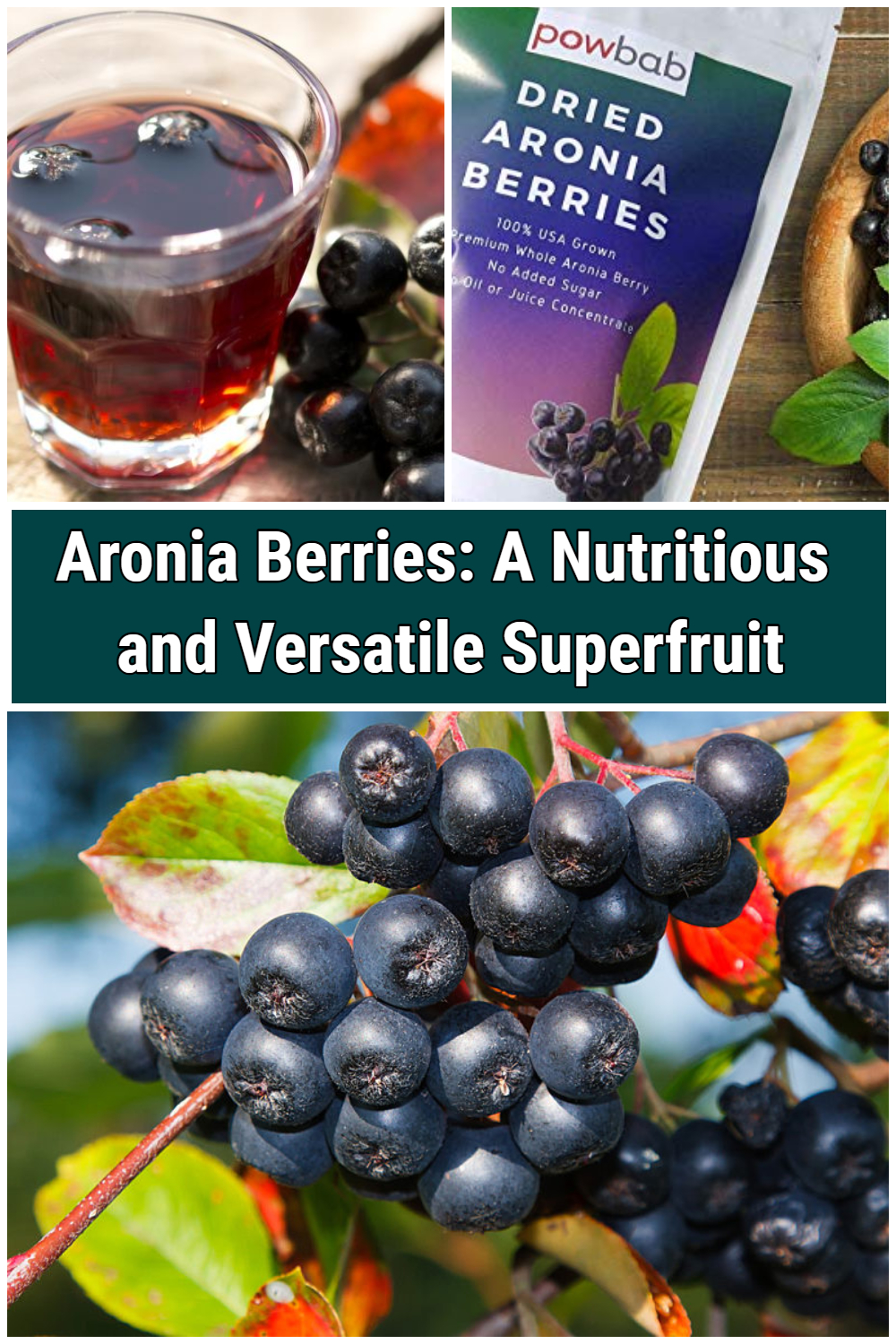Aronia, also known as the Black Chokeberry is native to eastern North America. Packed with numerous health benefits, this small, dark purple berry has been a staple in traditional medicine and cuisine for centuries. Over time, nutrient-dense superfruit has been widely used, particularly in Europe and Asia, for their antioxidant-rich properties and versatility. In recent years, Aronia now has gained recognition as a superfood.
This article explores the nutritional value, health benefits, uses, cultivation, and availability of Aronia berries. Scroll down to know more!
Nutritional Values of Aronia
Aronia berries have an exceptional nutritional profile, making them one of the most potent sources of antioxidants among berries. Some of its key nutrients include:
Aronia is a powerhouse of antioxidants, including anthocyanins, flavonoids, and phenolic acids, surpassing even blueberries and cranberries. These antioxidants help protect against inflammation and free radical damage, which can contribute to chronic diseases.

Aronia is also rich in vitamin C, which helps improve immune function and promotes skin health. It also contains vitamin K, essential for blood clotting and bone health; and folate, which is crucial for cell division and DNA synthesis.
Aronia is a good source of minerals like Potassium, which helps maintain healthy blood pressure. Additionally, the manganese in Aronia berries supports bone health and metabolism; and copper plays a role in neurological function.
Aronia is high in dietary fiber, promoting digestive health and aiding in weight management by enhancing satiety.
The amazing health benefits of Aronia
Rich in antioxidants, vitamins, minerals, and dietary fiber, Aronia berries offer a variety of health benefits. Consuming this nutritional powerhouse regularly may improve overall health and well-being in several ways. Some of the potential health benefits of Aronia include:
Supports Immune System
Rich in vitamin C and potent antioxidants, Aronia berries help boost the immune system, making the body more resilient to infections and illnesses.
Anti-Inflammatory Properties
The antioxidants and polyphenols in Aronia berries may help reduce chronic inflammation and alleviate symptoms associated with conditions like arthritis, asthma, and allergies.

Improves Cardiovascular Health
The fiber, potassium, and antioxidants in Aronia berries may help reduce blood pressure, and lower LDL (bad) cholesterol levels, further improving overall heart health. Additionally, its polyphenols aid in maintaining healthy blood vessels and reduce the risk of cardiovascular diseases.
Manage Blood Sugar Levels
Aronia’s antioxidants and fiber may improve insulin sensitivity and regulate blood sugar levels, making it a preferred ingredient for individuals with diabetes or those at risk of developing the condition.
Neuroprotective Properties
With high antioxidant content and flavonoids, Aronia berries may help improve brain function and protect against neurodegenerative diseases, such as Alzheimer’s and Parkinson’s.
How to Use Aronia Berries?
Fresh Fruit
When Aronia berries are fully ripe, they can be eaten raw, either on their own or added to salads, smoothies, and yogurt.
Juice
Turning Aronia berries into juice is a popular way to benefit from its high antioxidant content. You can blend Aronia juice with other juices for a refreshing and nutritious drink.

Supplements
Aronia extract is available in capsule or tablet form, making it more convenient for those who prefer a concentrated dose of its beneficial compounds.
Jam, Preserves, and Baked Goods
Not only be enjoyed fresh, but Aronia berries are also used to make delicious jams, jellies, and baked goods such as muffins and pies.
Tea
Aronia tea can be made by infusing dried Aronia berries in hot water, providing a soothing and nutritious tea.
Cultivation and Availability
Aronia is a relatively easy fruit to cultivate, thriving in various climates and soil conditions, making it an accessible crop for many regions.
Growing Conditions
Aronia bushes grow well in various conditions, from well-drained acidic soils to full sun to partial shade. They are relatively low-maintenance and resistant to pests and diseases.
Availability in Different Regions
Aronia is available in various regions. This superfruit is native to eastern North America, where they can be found growing wild in many areas. It’s also grown in many European countries, including Poland, Russia, and Ukraine. In Asia, Aronia is cultivated in several Asian countries, including China, Japan, and Korea.

Seasonality
Aronia’s harvesting time varies, depending on the region and climate. However, this nutrient-rich berry is typically in season from August to October. Once harvested, they can be consumed fresh, frozen for later use, or processed into various products.
Conclusion
Aronia is a superfruit with a high nutrient profile, offering a range of health benefits and uses. From improving the immune system to providing antioxidant and anti-inflammatory effects, Aronia is a valuable addition to a diet, especially for individuals who pursue optimal health and well-being.








